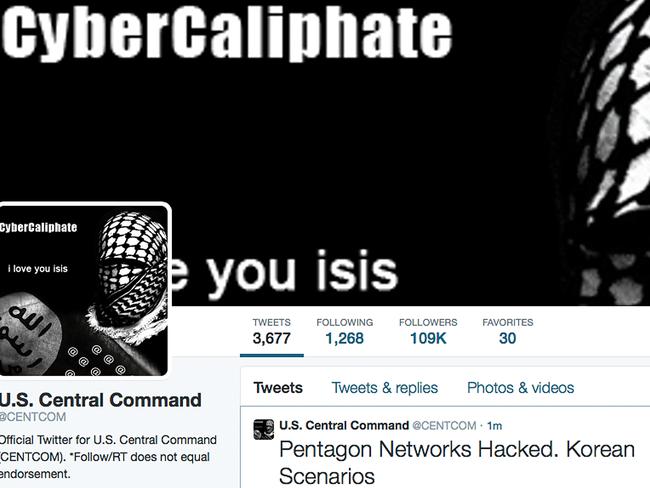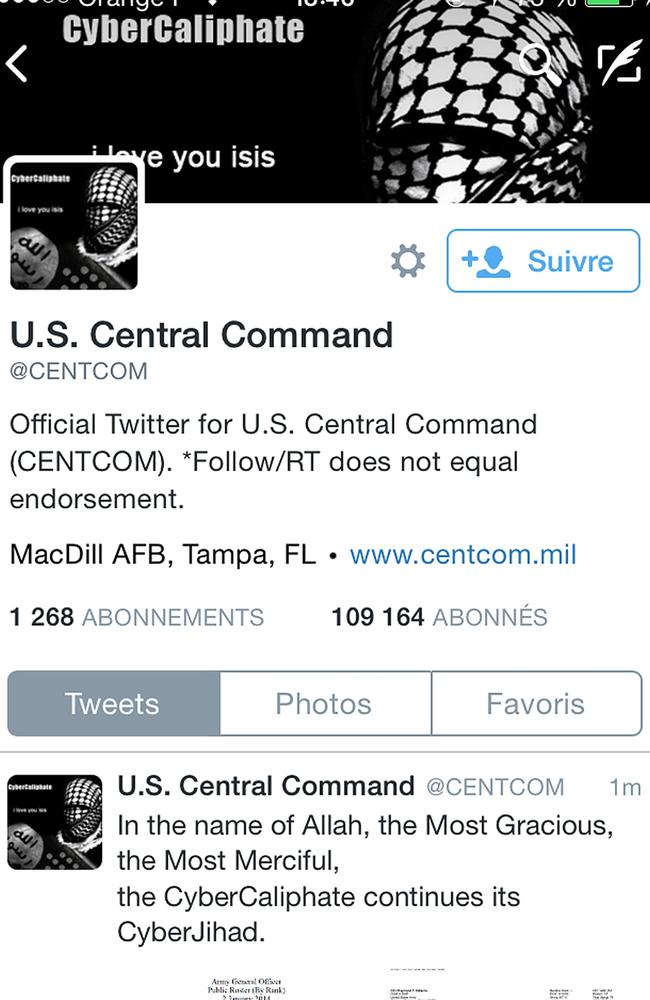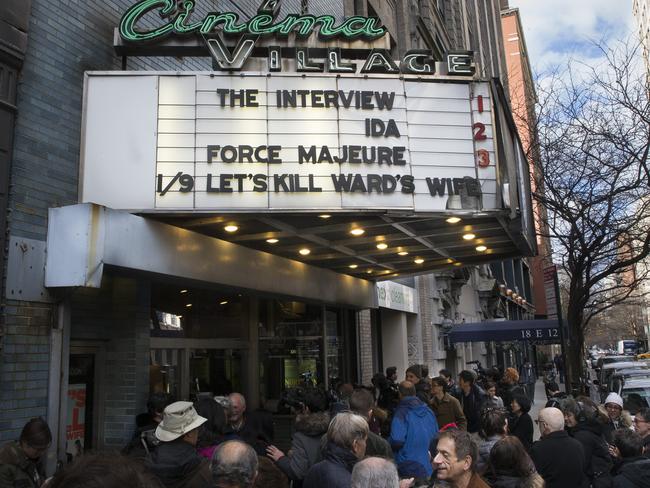Cyber militia and hacktivism tipped to skyrocket this year as political wars go online
INTERNET attacks from cyber militia and hacktivists will continue to rise this year, experts warn, and they’ve identified who is most at risk.
INTERNET attacks from cyber militia and hacktivists will continue to rise this year, experts have warned, with social media, government websites, and corporations at the greatest risk.
Popular websites including Twitter, Facebook and YouTube were likely targets for attacks, and internet users could face greater calls for two-factor authentication or biometric passwords in the wake of the intrusions.
The warnings come after a series of international, attention-grabbing hacks, from Sony’s company-wide compromise to the embarrassing takeover of American military’s social networking accounts this week.
Other incidents include an attack on a local Queensland library by Syrian activists, and hacking group Anonymous declaring a social media “war” on jihadist group ISIL after the Charlie Hebdo shootings.
CYBER CALIPHATE: US military Twitter, YouTube hacked by IS
ONLINE ATTACKS: Syrian activists hack Queensland library
Deakin University information systems chair Professor Matthew Warren said the internet attacks were diverse but a sign that hacktivism and attacks on government websites were on the rise.
Mr Warren said real-world tensions were spilling over into attacks on the internet, with the attackers aligning based on their political opinions.

“We’re seeing cyber militias form where people have been drawn together to attack a country based on something that has happened in the physical world,” he said.
“Certainly with political issues occurring in eastern Europe, like the Ukraine, the tensions in North Korea, the chances are that you are going to see the level of political hacking rise.”
Mr Warren said he did not “foresee critical infrastructure threatened by hackers” but the attacks would instead cause disruptions to popular websites and services.
Similarly, hacktivism like the attack on America’s CentCom social media accounts yesterday would become more commonplace this year, he predicted.

The attack by a group called Cybercaliphate saw CentCom’s verified Twitter account broadcast talk of a “CyberJihad” and warned US soldiers “we are coming, watch your back”.
But Professor Warren dismissed the attack as a publicity stunt designed to raise awareness rather than steal important information.
“What they’re doing is picking softer targets,” he said. “They’re claiming this great cyber victory so the perception is they’ve done something marvellous by penetrating military systems, but what they’ve actually done is just post some pictures and fake tweets.”

Regardless, Mr Warren said the attack highlighted the “weakness of social media” and not only predicted further attacks but greater calls for two-factor authentication on social media sites to protect users.
A recent worldwide study by the Centre for International Governance and Innovation found 72 per cent of internet users were concerned about cyber attacks on “important institutions in their country ... by a foreign government or terrorist organisation.”

Intel Security predicts further attacks this year to take place on internet-connected appliances with weak security, and unprotected mobile devices including smartphones.
Intel Security chief technology officer Mike Sentonas said last year “will be remembered as the year of shaken trust” due to an “unprecedented amount of cyber attacks”.
“Ultimately, we need to get to a security model that’s built-in by design and seamlessly integrated into every device at every layer of the computing stack,” he said.



